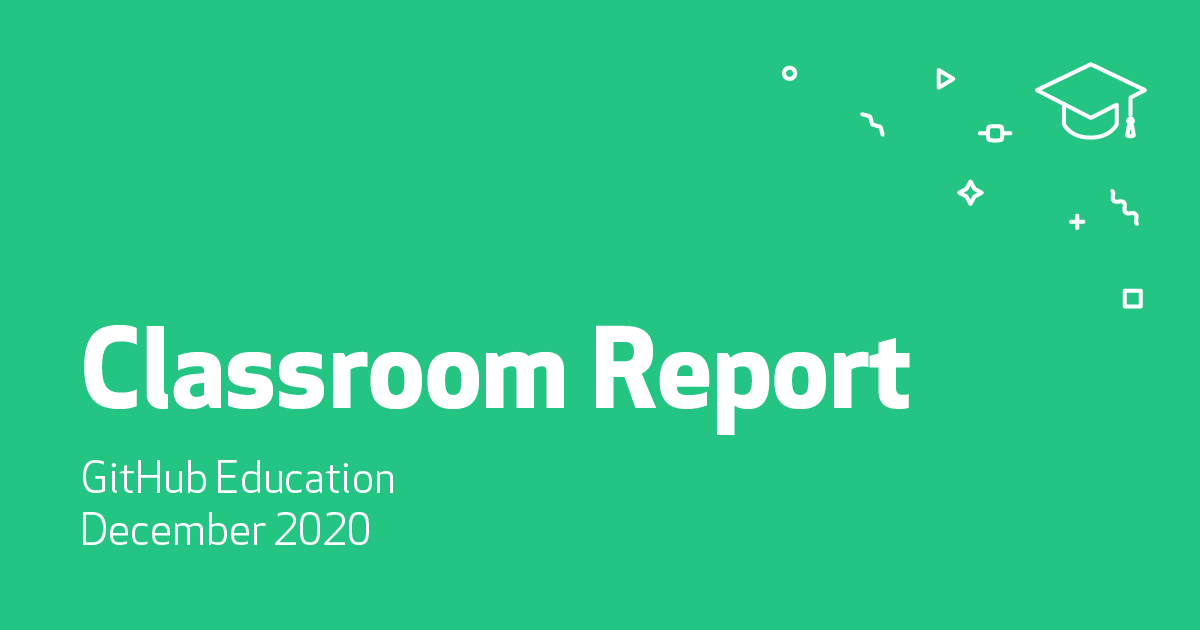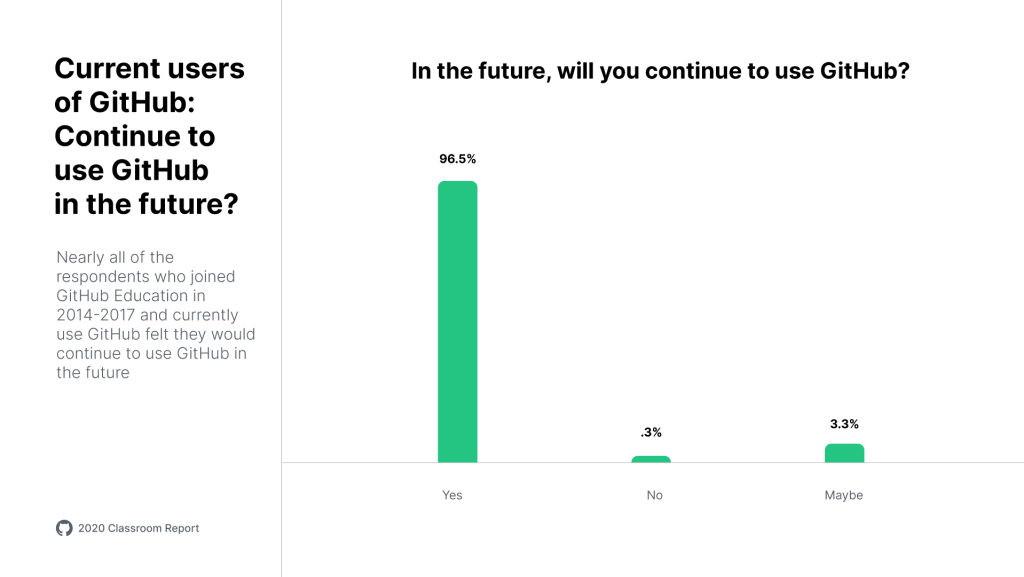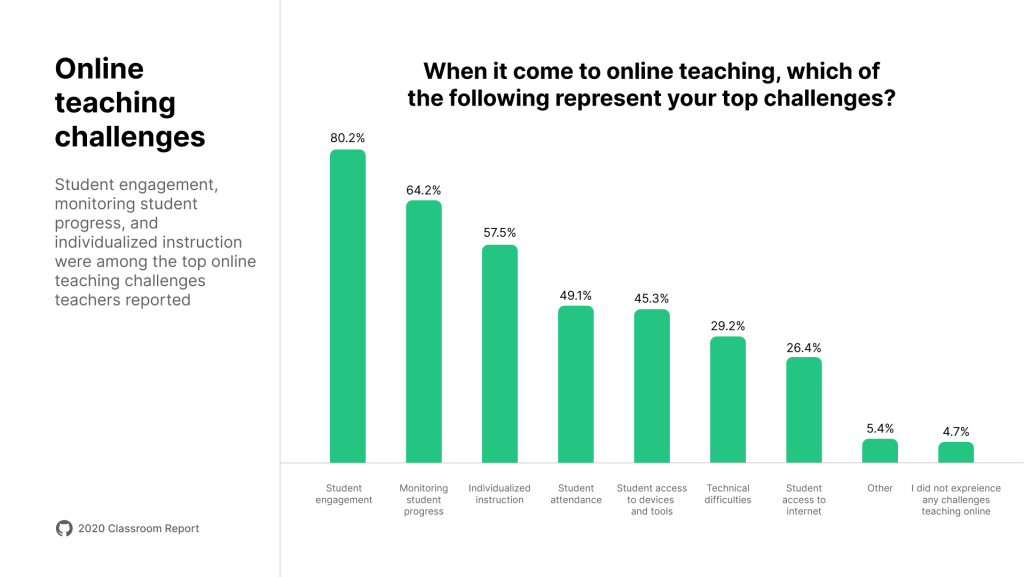Announcing the GitHub Education Classroom Report 2020
For the fourth year in a row, the GitHub Education team surveyed students and educators to provide faculty with information to support augmented instruction and share key insights from other…

For the fourth year in a row, the GitHub Education team surveyed students and educators to provide faculty with information to support augmented instruction and share key insights from other instructors. GitHub Education helps students, teachers, schools, and partners access the resources they need to shape the next generation of developers. This is particularly important as technical education continues to evolve.
This year, we surveyed more than 7,000 students and over 100 educators to identify and share insights into the student developer toolchain, how students learn real-world workflows, and expectations around technical course work. To build upon our previous data collection from 2019, 2018, and 2017, this year’s report includes urgent and timely data to shed light on how remote learning has impacted classwork. We also dove into the path to work to provide context and help partners connect with younger developers.
The next generation of developers
When it comes to serving the next generation of developers, it’s crucial to understand who they are and, like technology, how they’ve evolved. The 2020 report provides information on emerging developers, including where they are, what languages they’re using, their workflow, and what they’re looking for in the workplace. Our report provides key insights into engaging younger builders and attracting top tech talent. Here are a few findings from our report:
- Developer populations are growing at faster rates in APAC and LATAM
- More students than ever will come out of school with Python as their first language
- Early-career developers report using 2-3 tools as part of their workflow, and increasingly browser-based integrated development environments (IDEs)
- Almost 40% of early-career developers surveyed have used browser-based developer tools, such as repl.it, Codepen, and Code Sandbox
- Increased engagement with open source projects
Read the full report to see how you can support the next generation of developers.
What’s next for students and faculty
While some trends remain the same as in previous years, we also saw new trends around internship preferences and programs. For example, Visual Studio Code continues to be the number one choice among early-career developers. This year’s report reveals that students are looking at internships that provide well-compensated positions, real-world experiences, as well as opportunities to learn. In fact, data shows that interns select pay scale as one of the top decision-making elements. Another decision-making element: remote work. Data shows that emerging developers expect remote work to become standard operating procedure even after the pandemic.
What else do they want? The next generation of builders want GitHub. How do we know? We asked students. More than 50% of respondents who joined GitHub Education in 2014-2017 consider themselves very familiar to extremely familiar with GitHub and more than 95% plan to continue using it in the future.

It’s important to understand the needs of student developers and how data helps to create a successful career path. Understanding the evolution of technical education is equally important. That’s why our comprehensive report includes information and tools specifically for faculty.
Both students and faculty are facing challenges as virtual classrooms become the new normal. The overwhelming issue educators face is student engagement, but that’s not all. In addition, monitoring student progress and individualizing instruction ranked high among challenges reported by faculty.

Thank you
This year has challenged the entire tech community in ways we never could have imagined. We want to thank the thousands of students and educators who took part in this report. The invaluable data we received will support faculty as they navigate virtual classrooms and employers as they recruit emerging tech talent. Together we can help shape the next generation of technologists.
Ready to dive into the new normal with the GitHub Education community?
Read the 2020 GitHub Education Classroom Report
Written by
Related posts

From pair to peer programmer: Our vision for agentic workflows in GitHub Copilot
AI agents in GitHub Copilot don’t just assist developers but actively solve problems through multi-step reasoning and execution. Here’s what that means.

GitHub Availability Report: May 2025
In May, we experienced three incidents that resulted in degraded performance across GitHub services.

GitHub Universe 2025: Here’s what’s in store at this year’s developer wonderland
Sharpen your skills, test out new tools, and connect with people who build like you.